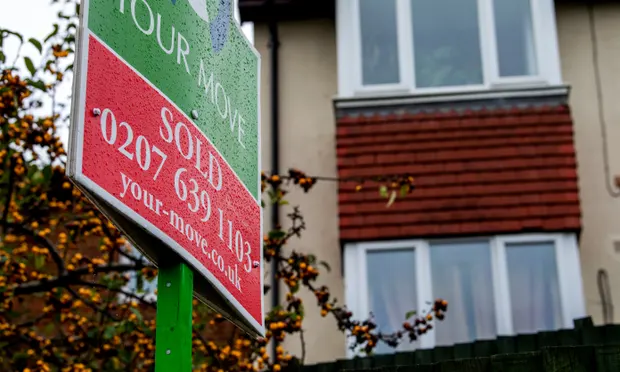Britain’s biggest housebuilder has warned that conditions will “continue to be difficult” for the housing industry over the coming months as potential buyers struggle with the rising cost of home loans.
Barratt Developments said “short-term demand has been impacted by mortgage affordability challenges” and it was reducing construction sharply in response, but also reported £705m in annual profits.
Housebuilding across the UK contracted sharply in August, according to separate data from the construction purchasing managers’ index published on Wednesday by S&P Global. The measure of activity fell to its second-lowest since the first pandemic lockdown in May 2020.
The UK housing market began to falter in September 2022, when Liz Truss as prime minister and Kwasi Kwarteng as chancellor caused chaos in financial markets with their disastrous mini-budget. Barratt said it responded with a “headcount freeze” that has cut employee numbers by 6%, or about 400 jobs.
“Customers continue to face cost of living and mortgage affordability challenges, and new developments are increasingly constrained by an ineffective planning system,” said David Thomas, Barratt’s chief executive.
Yet despite the short-term weakness in the market, Barratt said there was still a continuing and worsening imbalance between housing demand and supply.
Many economists and some ministers agree that the UK housing industry is not building enough homes to meet longer-term demand, which has sustained house prices near record levels even with economic growth faltering. Average house prices fell by 5.3% in the year to August to about £259,000, according to Nationwide building society.
Building more homes in the face of somewhat reduced demand during the cost of living crisis would help to lower inflated prices but housebuilders are acting to protect their profit margins by reining in construction.
Barratt built 17,206 homes in the year to 30 June, a drop of 3.9% compared with the year before. It plans to slash the number of houses it builds in the latest financial year to between 13,250 and 14,250, a fall of as much as a fifth.
The company said it had reduced costs as soon as the housing market started to falter in September last year. Those cuts helped it to increase its profit margins by a percentage point to 18.3%. Barratt’s profit before tax rose by 10% to £705m. However, under the company’s adjusted measure, which strips out one-off changes, profits fell.
Barratt also said that overall house price inflation was running below build inflation in building costs, weighing on its profitability.



